The benefits of cleaning for mental health are more powerful than you might expect. Whether it’s tidying a cluttered desk, vacuuming under the sofa, or deep-cleaning the bathroom, cleaning has a subtle—but significant—effect on our minds. It’s a habit so ordinary we often overlook how transformative it can be. Yet behind the routine is science: evidence that cleaning offers genuine psychological and physiological perks.
To explore this further, we ran a study with 30 participants. Each wore a smartwatch to track heart rate while doing real-life cleaning tasks. They also recorded their emotional state before, during, and after the activity. The results revealed a compelling connection between physical cleaning and mental clarity. Here’s what we learned.
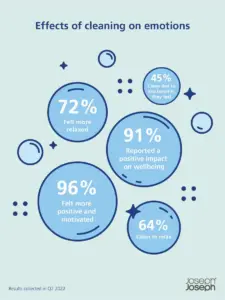
1. Cleaning Boosts Mood and Motivation 📈
Among the most cited benefits of cleaning for mental health is its power to uplift. A study we conducted with smartwatches tracked heart rates during various chores. The results?
-
96% of participants felt more productive and motivated
-
91% reported improved mental wellbeing
-
71% experienced increased relaxation
This data shows cleaning delivers a dramatic mood uplift—proof that even everyday chores can spark joy.
This boost wasn’t just emotional—it was chemical. Cleaning triggers the brain’s reward system, releasing dopamine, the “feel-good” hormone. Participants also reported that completing even small cleaning tasks gave them a sense of progress and purpose—vital components of sustained motivation.
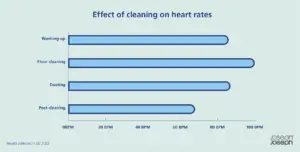
2. Physical Chores Raise But Also Calm the Heart Rate
Tasks like dusting and washing-up stimulated just enough physical movement to feel satisfying, without overstressing the body.
-
Floor cleaning averaged 132–134 bpm—physically intense yet 34% still felt motivated
-
Washing-up averaged 84 bpm, with 20% feeling calm and in control
-
Dusting came in at 87 bpm, helping 21% feel in control
These results reinforce that the benefits of cleaning for mental health don’t require intense effort they come from intentional movement and sensory engagement.
3. Cleaner Homes = Lower Stress Levels
Clutter has been shown to increase cortisol. According to the National Association of Productivity & Organizing Professionals, clutter can increase cortisol, the body’s stress hormone. Our own survey supports this:
-
60.9% felt happier and more productive
-
52.2% experienced a sense of ease
-
47.8% had reduced stress
-
43.5% felt calmer
Only 4.3% reported feeling more stressed afterward. These numbers show how cleaning dramatically improves mental clarity.
This is one of the core benefits of cleaning for mental health: reduced anxiety in an environment you control.
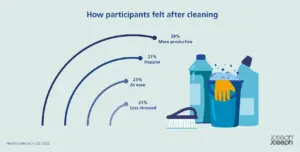
4. Science-Backed Mood Improvements
Indiana University studies have confirmed that tidy homes are often linked with healthier habits and emotional resilience. These findings align perfectly with the benefits of cleaning for mental health, as a clean space often translates to a clear head. Engaging in routine, manageable tasks creates structure, offers quick wins, and reintroduces a sense of control over your environment.
Moreover, environments filled with clutter have been shown to negatively impact focus and increase feelings of anxiety. Cleaning offers a low-cost, effective antidote.There’s real science behind it.
-
Studies from Indiana University reveal that people with clean environments are generally healthier and happier
-
Mess increases anxiety and depression risk
-
Meanwhile, cleaning raises heart rate—like a light cardio workout—for an added mood boost 💪
5. Finish with Calm: Heart Rate Drops After Cleaning
Beyond just mental clarity, cleaning had a literal calming effect. Participants’ average heart rate post-cleaning dropped to 63 bpm, significantly lower than during or before the tasks. This is especially important for those managing stress or anxiety, where physical relaxation reinforces emotional ease.
The final effect? A clean environment that invites stillness, productivity, and peace.
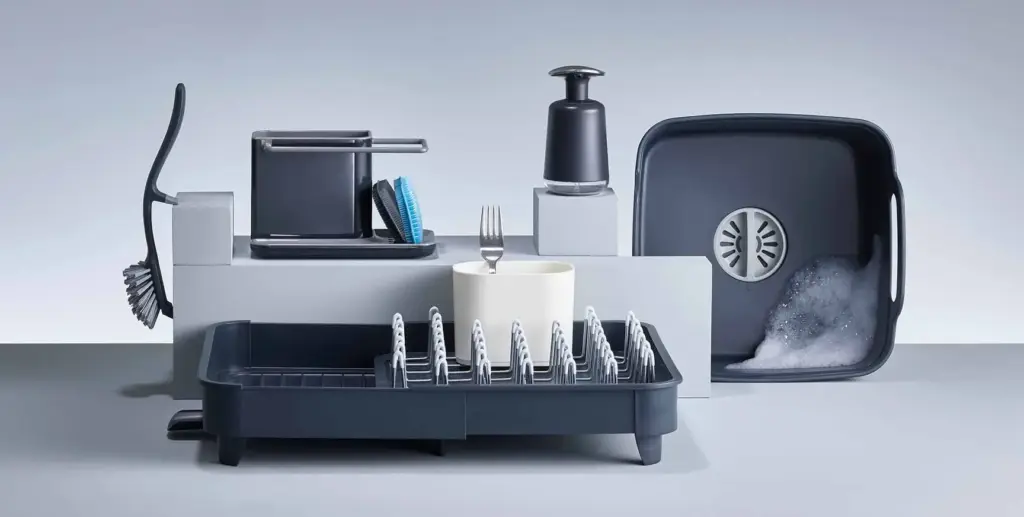
Methodology
We observed 30 participants doing cleaning tasks with heart-rate monitoring at 1, 5, 10, and 20 minutes, then monitored post-clean at 5, 10, 20, 30, 50 & 60 minutes. Emotional states were rated before, during, and after each task.
Inside the benefits and rituals of cleaning:
How cleaning boosts wellbeing
Check out our full line of cleaning essentials to help you stay motivated:
Shop Cleaning Tools





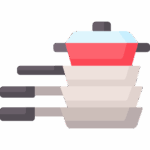 Cookware
Cookware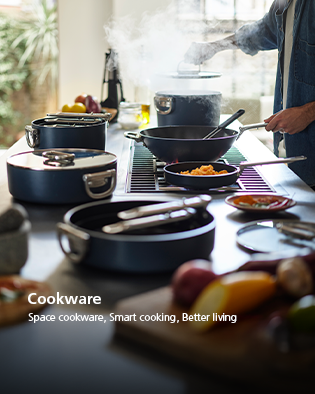



 Kitchenware
Kitchenware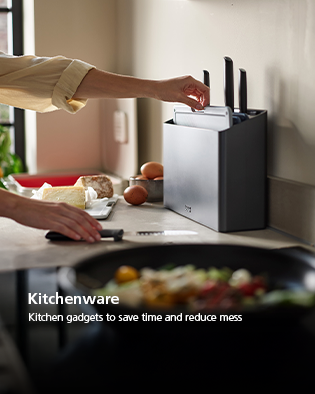



 Bins & Recycling
Bins & Recycling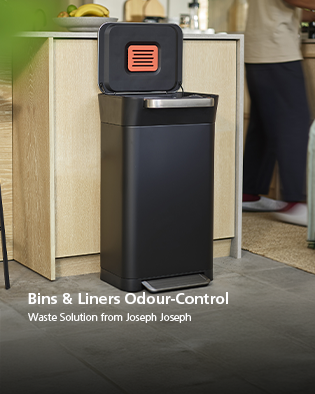



 Laundry
Laundry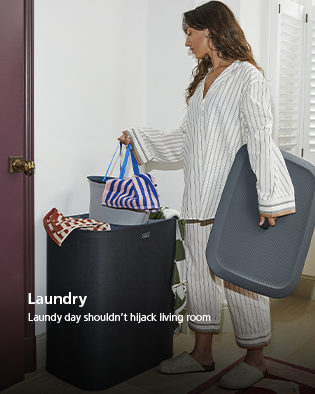

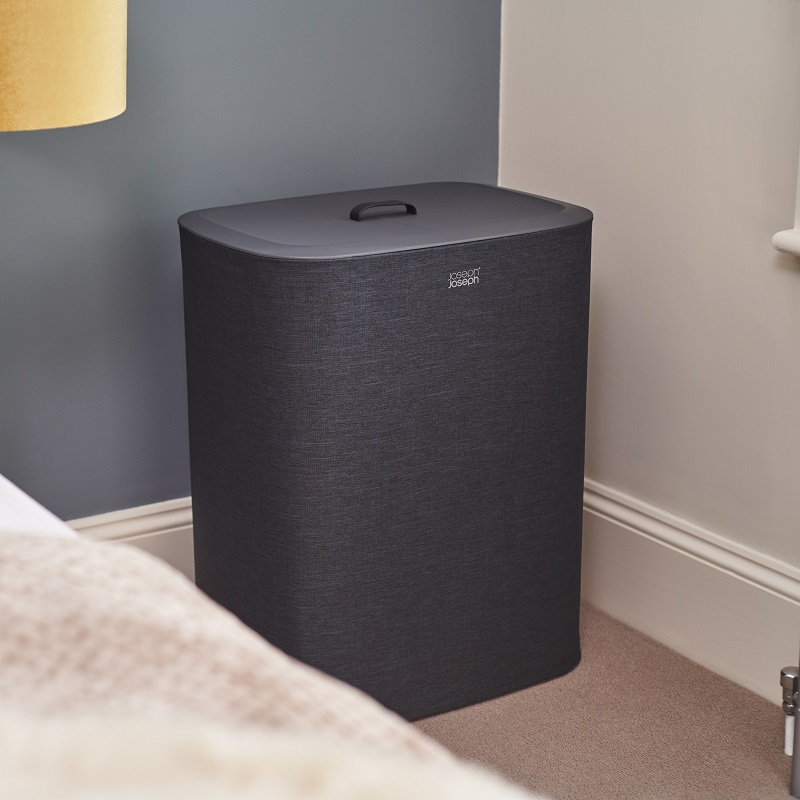

 Storage & Organisation
Storage & Organisation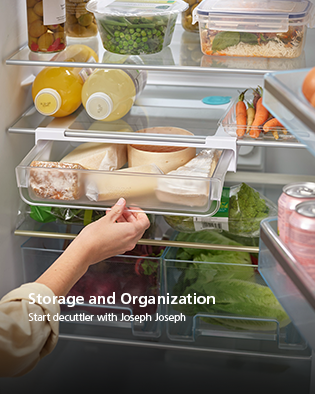



 Bathroom
Bathroom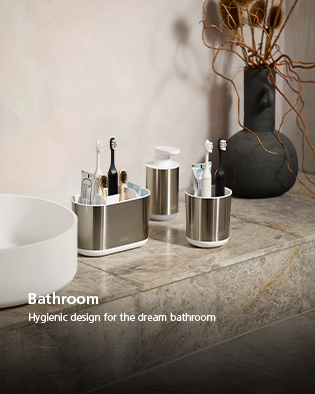
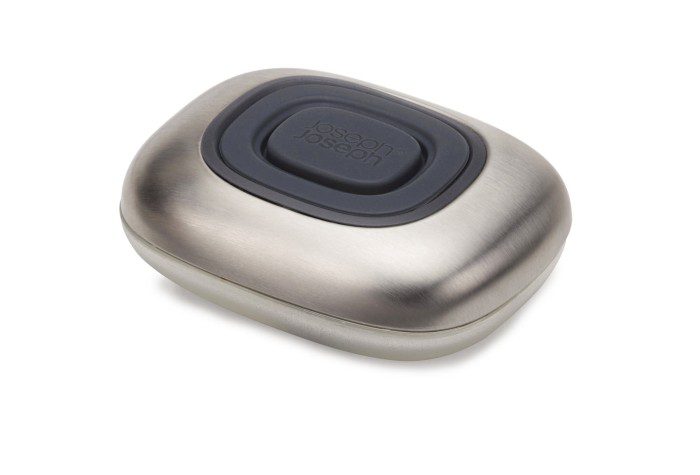


 Cleaning & Washing-Up
Cleaning & Washing-Up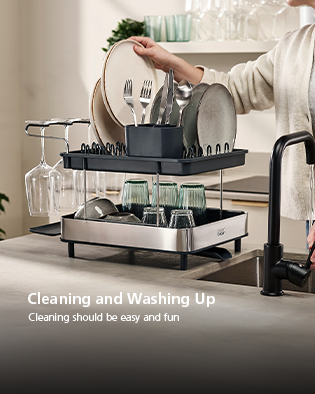



 All products
All products



